Faith and Politics
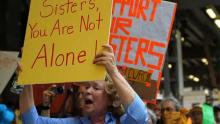
Fifty years after Pope John XXIII convened the Second Vatican Council to modernize the Roman Catholic Church, the legacy of that watershed summit that revolutionized Catholic life is at the core of a dispute between the Vatican and American nuns.
In April, the Vatican accused the Leadership Conference of Women Religious (LCWR), the umbrella group that represents the majority of American nuns, of “doctrinal confusion.” As LCWR leaders meet this week (Aug. 7-11) to plot their response to the Vatican, many of the sisters say they are just following the spirit of Vatican II.
“This is not just about the Vatican versus the nuns. This really is about the future of how we interpret the message of the Second Vatican Council,” Sister Maureen Fiedler told the PBS program “Religion & Ethics NewsWeekly.”

Law enforcement authorities don't know why suspected gunman Wade Michael Page burst into a Sikh temple in Oak Creek, Wis., on Sunday and opened fire, killing six before he was shot dead by the police.
But many American Sikhs say they do know this: Their community has been targeted by a growing number of hate crimes since the 9/11 terrorist attacks. The New York-based Sikh Coalition reports more than 700 such incidents since 2001. The question is: Why?
"The turban is the main issue here," said Pashaura Singh, a professor of Sikh and Punjabi studies at the University of California-Riverside. "People confuse Sikhs with Osama bin Laden."
Following 9/11, bin Laden and his al-Qaida associates were often shown in media reports wearing white turbans. Combine that with a lack of basic knowledge about the estimated 500,000 Sikhs living in the U.S. and you get tragic — and sometimes violent — cases of mistaken identity.

By tradition, the storied Al Smith Dinner has provided a few hours of comic relief from the angry volleys of the campaign trail – a white-tie charity banquet held in the weeks before Election Day, hosted by the archbishop of New York and featuring speeches by the two presidential candidates on the condition that they lob nothing more than good-natured jibes.
But the Catholic hierarchy’s fierce feud with President Obama, abetted by the increasingly sharp tone of the 2012 elections, is threatening to invade this demilitarized zone and give New York Cardinal Timothy Dolan a case of pre-dinner agita.
Dolan has reportedly extended an offer to Obama (as well as his Republican opponent, Mitt Romney) to attend this year’s dinner at the Waldorf-Astoria, scheduled for Oct. 18, and the president has accepted. That has mobilized abortion opponents, who view Obama as the worst thing since Roe v. Wade and an enemy of religious liberty because of his administration's controversial birth control mandate.
The Rev. Frank Pavone, head of Priests for Life, a leading abortion opponent based in Staten Island, said on Aug. 6 that “the polite putting aside of differences for a while amounts to scandal.”
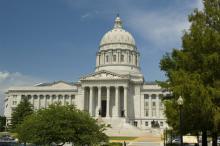
Missourians will vote on Tuesday on a proposed amendment to the state constitution that supporters say would protect residents' right to pray in public. If a recent poll is any indication, it could pass by a mammoth margin.
Supporters say the so-called "right to pray" ballot measure — known as Amendment 2 — better defines Missourians' First Amendment rights and will help to protect the state's Christians, about 80 percent of the population, who they say are under siege in the public square.
Opponents, meanwhile, say that the religious protections Amendment 2 would offer are already guaranteed by the Bill of Rights and the U.S. Constitution, and that it will open the door to all manner of unintended and costly consequences including endless taxpayer-funded lawsuits.

Does anybody else feel this weight?
I woke up this morning in tears. I don’t know why today is different, but I do know the weight is for my brothers and sisters who are in pain.
I imagined what the night was like for folks in my neighborhood who had to fend off threats last night.
I imagine the young girl in a car — against her will or against her first choice — with the guy named John, and I lament for her soul.
I imagine the young guy standing out all night selling death so he can have a little life — whether it’s in the form of food, dignity or just to feel like he is meeting some need, somehow.
I imagine the mom lying in the bed next to someone she would rather not touch, but because he pays the bills for her kids to eat and sleep, she puts up with his abuse and doesn’t say anything about the other woman he also lies with around the corner.
A new poll shows that American Catholics tend to agree with their bishops’ concerns that religious liberties are at risk in the U.S.
Nevertheless, Catholics seem to be warming to President Obama, even as the bishops lambaste his administration in their fight to roll back a federal mandate that requires employers — with some exceptions — to cover birth control in their health plans.
The poll, released on Aug. 1 by the Pew Forum on Religion & Public Life as the contraception mandate took effect, found that among Catholics who are aware of the bishops' protests, 56 percent say they agree with the bishops’ concerns, as opposed to 36 percent who disagree.

Though she is at the center of one of the biggest crises in the Catholic Church today, Sister Pat Farrell is loath to talk about herself, and certainly not in any way that would make her a focus of the looming showdown between the Vatican and American nuns.
To be sure, Farrell has spoken publicly and with quiet clarity about why the organization she heads, the Leadership Conference of Women Religious, rejects Rome’s plans to take control of the umbrella group that represents most of the 57,000 nuns in the U.S.
In announcing its proposed takeover last April, the Vatican accused the nuns of embracing a “radical feminism” that questions church teachings and focuses too much on social justice causes. Farrell says the American sisters are simply doing what the gospel requires, often speaking on behalf of so many in the church who have no one else to advocate for them.
The high-profile confrontation will reach another crucial pass next week (Aug. 7-10) when LCWR members gather in St. Louis to develop a formal response to the Vatican’s plans. Options run the gamut from complying with all of Rome’s directives (unlikely) to decertifying the group and re-establishing it outside of the pope’s control (a possibility).
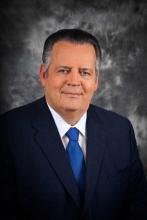
Richard Land, the man who became the public face of the Southern Baptist Convention on ethical and political issues for nearly 25 years, has announced plans to retire in 2013 after a rough-and-tumble spring.
The decision comes months after Land, president of the SBC’s Ethics & Religious Liberty Commission, made controversial comments about the Trayvon Martin case that resulted in a reprimand and the loss of his radio talk show for the racial tension they caused.
Land, 65, said in a Tuesday letter announcing his retirement that he has no intention of ending his role as a culture warrior.
“I believe the ‘culture war’ is a titanic spiritual struggle for our nation’s soul and as a minister of Christ’s Gospel, I have no right to retire from that struggle,” Land wrote in a two-page letter to the acting chairman of his commission.
I have to admire Melinda Gates' chutzpah.
In her recent TED talk and on her blog, Impatient Optimist, Gates insists that "contraception is not controversial" — when, in the last year, it has been explosively controversial, with many Christians (not just Catholic Christians) seeing the "contraceptive mandate" as a real threat to religious freedom.
Yesterday, the new Affordable Care Act laws took effect, meaning that most employers must now provide free birth control coverage in their health insurance policies. Whether it constitutes a threat to religious liberty and whether remains to be seen — faith-based groups with religious objections to the law have a "safe harbor" until Aug. 1, 2013. Whether HHS will create an extension of this harbor is as yet unknown.
Regular readers of my blog know where I stand on health insurance. As to the contraceptive mandate specifically, I'd prefer not to wade in those particular waters — David Gibson had a good piece if you're interested in the question of whether the mandate kills religious freedom. However, I do want to consider two small points about contraception that lean me toward the (self-identified Catholic!) Melinda Gates point of view:
1. Contraception doesn't take life;
2. Women want contraception.

Today Wheaton College, a leading evangelical Christian school and the alma mater of the Rev. Billy Graham in Illinois, sought an injunction for "emergency relief," as it seeks to remain exempt from the Health and Human Services (HHS) insurance mandate which comes into effect today.
Filed on Wheaton's behalf by The Becket Fund for Religious Liberty, the preliminary injunction would, the college hopes, temporarily keep at bay the fines which would be levied on them under the mandate, should they fail to comply with the provisions.
The provisions, which are part of the Affordable Care Act, would require “most employer health insurance plans to provide birthday control coverage,” as was reported on God’s Politics last month. Many Catholic institutions and groups have already filed lawsuits again the mandate, and Wheaton is one of a growing number of evangelical institutions joining in the legal challenge.
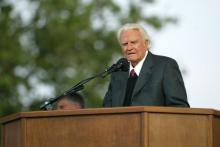
Let me tell you about Billy Graham, just as he is, because based on what I experienced working for the man for six years, two statements issued under his name last week (and one earlier this year) significantly collide with the well-established values of this great humble faith leader.
The first statement I am referring to is the fundraising letter for the Billy Graham Evangelistic Association (BGEA) that quoted Billy's late wife Ruth as saying, "If God doesn't punish America, He'll have to apologize to Sodom and Gomorrah." The letter goes on, in Billy's alleged words, "My heart aches for America and its deceived people."
The second statement is Billy's statement of support for "my good friends [Chick-fil-A founder] Truett Cathy and his son Dan Cathy ... for their strong stand for the Christian faith." The statement actually continues, in Billy's voice, to say, "As the son of a dairy farmer who milked many a cow, I plan to 'Eat Mor Chikin' and show my support by visiting Chick-fil-A next Wednesday." (Update: BGEA issued a revised statement clarifying that Billy now "plans to enjoy his chicken at home.")
The earlier statement was a full-page ad for Amendment One and the North Carolina state constitutional amendment stating the only valid and recognized domestic legal union to be "marriage between one man and one woman." The ad was emblazoned with Mr. Graham's distinguished elderly visage, and appeared in 14 North Carolina newspapers in advance of the May 8 vote that established the amendment as N.C. state law.
At the time of the Amendment One ad, official Billy biographer William Martin told the Associated Press that he believed the words were not those of Billy's son and current BGEA President Franklin Graham: "Franklin has been more outspoken about it, but it sounds as if this is Mr. Graham expressing his own will."
I believe Martin was wrong then, and I'm even more convinced now. Mr. Graham had never made political statements like this in the 62-year history of the ministry, and BGEA's evangelistic crusades have never partnered with corporations like Chick-fil-A, although they easily could have. (Evangelist Luis Palau, a disciple of Billy's, uses corporate sponsors for all of his city-wide events these days.) Now, to have three of these statements come out in the past three months — and a very obvious commercial for a fast-food chain — causes me to wonder if this trickle will turn into a flood, right at the end of Billy's life.

I have been a Little League baseball coach for both of my sons’ teams for many years. And I’ve learned that baseball can teach us life lessons.
Just a few weeks ago, my 9-year-old’s team was down 5-0, and we had already lost our first two games. It didn’t look good. But all of a sudden, our bats came alive; all our practice and preparation suddenly showed itself. Best of all, our rally started in the bottom half of the order, with our weakest hitters. Two kids got on with walks, and our least experienced player came to the plate. With international parents, he had never played baseball before, and you could tell he didn’t have a clue. But somehow he hit the ball, and it went into the outfield. Our first two runs scored, and he ended up on second base. Being from a British Commonwealth culture, he began to walk over to the shortstop and second baseman and shake their hands! “Stefan,” I shouted. “You have to stay on the base!” “Oh,” he said. “I’ve never been here before.”
Inspired, other kids who had never got hits before also got them now. Then the best hitters started to hit, and we came back to win 11 to 6. In a long team meeting afterward, the kids couldn’t stop telling each other what they had learned. “We didn’t give up, and we came back!” “Our rally started with the bottom of the order.” “Sometimes you get what you need from unexpected places.” “We all just kept cheering for each other.” “Everybody helped us win today.” Finally, our star player said, “This just goes to show you: You can’t ever give up on hope. We always have to keep on hoping no matter what.”
This is central to our vocation in the churches: to offer unexpected hope, because our mission is to the kingdom of God—“thy kingdom come, thy will be done, on earth as it is in heaven.” That is what we pray. And while the kingdom of God was the central message of Jesus and the New Testament, it has faded as ours. Finding salvation to heaven is part of the message, getting closer to God is part of the message, but the heart of the message of Jesus was a new order breaking into history—changing everything about the world, including us.
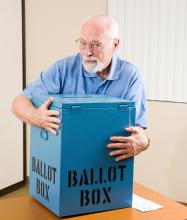
TODAY, THE RIGHT to vote is under assault across the country. From photo ID requirements to restrictions on voter registration, there are new barriers to the ballot box. While proponents of recent election law changes claim those changes are “race-neutral,” the measures will have a disproportionate impact on minority voters.
In Florida, for instance, African Americans made up 32 percent of those who voted on the Sunday before Election Day 2008, often in “all souls to the polls” drives organized by historically black churches. They were among the nearly 8 million Americans who voted early. Florida, Georgia, Ohio, Tennessee, and West Virginia have since passed legislation reducing early voting.
The tea party-infused True the Vote, reportedly bankrolled by Far Right billionaires Charles and David Koch, plans to bring lawsuits to purge the voter rolls of allegedly ineligible voters. While the fear-inducing image of non-citizens voting has little to no basis in reality, it has real consequences.
In Florida, a law passed last year effectively stopped the League of Women Voters, Rock the Vote, and similar groups from conducting voter registration drives this spring. The law imposed restrictions on voter registration volunteers and subjected groups to $1,000-a-day fines if they didn’t turn in voter registration forms within 48 hours of completion. While parts of the law were temporarily blocked at the end of May by a federal judge as unconstitutionally “harsh and impractical,” it has already prevented civic groups from registering voters for some months. Registration drives encourage voting among the young and people of color, who often vote Democratic.
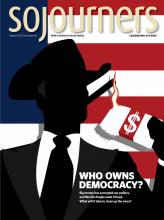
FROM FICTIONAL bloodsuckers to all-too-real super PACs, the diseases of our society’s relationship to wealth are unpacked in this month’s Sojourners—along with some suggestions for hope and healing. Looking at the real-life body politic, Nick Penniman’s cover story, “Rotten to the Core,” tells us just how badly our broken campaign finance system has corrupted democracy; he also points to specific strategies a “strange-bedfellows army” is using to tackle the problem. Surveying the U.S.
LATE LAST YEAR, President Obama made a pilgrimage of sorts to the sleepy town of Osawatomie, Kansas, to talk about the economy. He went there because it’s where, in 1910, Teddy Roosevelt gave one of his most famous speeches, called “The New Nationalism,” which was, in part, an attempt to unite his party around a common vision of a well-managed economy.
Obama’s mission was similar, although more focused on philosophically framing up the 2012 elections. The White House communications staff had built up expectations about the speech, and the president delivered, movingly describing how America can better encourage innovation, shore up the middle class, and expand opportunity. For the most part, the media were aglow.
A few minutes in, he quoted from Roosevelt’s speech: “‘Our country,’” Obama said, “‘means nothing unless it means the triumph of a real democracy ... of an economic system under which each [person] shall be guaranteed the opportunity to show the best that there is in him [or her].’”
But, notice those ellipses. What he omitted was an important phrase from the original quote: “the triumph of popular government.” Five words may not seem like much. Perhaps the president felt as if “real democracy” said enough, or perhaps his speechwriters felt as if it wouldn’t be politically prudent for him to speak so highly of government. But the omission also points to a larger exclusion, not just in Obama’s speech, but in his presidency and, most significantly, in our country’s priorities.

IN OUR DEMOCRACY, the first Tuesday in November is supposed to be an election. Unfortunately, it is turning into an auction, with government for sale to the highest bidders. Powerful interest groups buy clout with big campaign contributions.
Recently, the billionaire owner of the Minnesota Vikings persuaded the Minnesota legislature to build a new stadium with public funds. It was an enormous gift: It works out to a $72 taxpayer subsidy for every ticket, to every game, for the next 30 years!
This huge subsidy passed with votes from legislators of both parties, despite strong public opposition. Along with a multimillion lobbying campaign over the past decade, the Vikings owner, Zygi Wilf, with his family and lobbyists, contributed thousands of dollars to the Republican legislative caucuses and the Republican gubernatorial and legislative candidates.
They also contributed thousands of dollars to the Democratic legislative caucuses and the Democratic gubernatorial and legislative candidates. Why would they give to both parties and even to candidates running against each other? They say it is because their interests are bipartisan. Perhaps this might be more appropriately spelled “buy-partisan,” since they were trying to buy favor with both parties.
Did those contributions make a difference? Imagine what would happen if Wilf tried the same strategy to get his way at an NFL game and made $1,000 or $1,500 “contributions” to each of the referees before the next Vikings-Packers game. The NFL would kick Wilf and his team off the field and fire the officials without waiting for proof that the money affected the officiating. The conflict of interest is obvious.

It could get pretty crowded at Chick-fil-A this week — and not because of the fast-food restaurant's famous waffle fries.
Supporters and opponents of gay marriage plan to appear at Chick-fil-A locations nationwide after the company's president strongly denounced same-sex relationships.
The restaurant chain with Christian roots — “closed Sunday,” it proudly proclaims — is run by owners with conservative values. Now company President and CEO Dan Cathy has sparked a nationwide food fight by saying he is "guilty as charged" for supporting traditional marriage.
"We are very much supportive of the family — the biblical definition of the family unit. We are a family-owned business, a family-led business, and we are married to our first wives," Cathy told the Biblical Recorder newspaper. The article was reprinted by Baptist Press on July 16.
Former Republican presidential candidate Mike Huckabee has spearheaded “Chick-fil-A Appreciation Day’’ and, as of Tuesday, more than 500,000 people had pledged on its Facebook page to show up or give support to the restaurant via social media on Wednesday. [Editor's Note: As of 9:30 a.m. EST Wednesday, 853,482 people had said they were "attending" or "maybe attending" Huckabee's event at the fast-food chain.)

The Obama administration’s policy requiring most employers to provide free birth control coverage in their health insurance policies takes effect on Aug. 1 — a deadline that has sparked apocalyptic warnings from conservative activists and some faith groups.
“August 1st is a day that will live in infamy for the First Amendment and the fundamental freedoms and rights we as a people have enjoyed since the founding of our nation,” said Brent Bozell, head of ForAmerica. “With the stroke of a pen, the Obama Administration has shredded the First Amendment and the Constitution right before our eyes.”
“August 1st will be remembered as the day our most cherished liberty was thrown in a government dumpster and hauled away,” echoed Matt Smith, head of Catholic Advocate. And that’s just a sampling of the outrage.
Are the claims legitimate? As with most federal regulations, it’s complicated, and the supercharged politics of the issue, in the midst of a presidential campaign, don’t help.
Moreover, religious freedom is by its nature a topic that prompts heated debates — without always providing a clear answer.

Michael Goldstein voted for Barack Obama in 2008 and supports gay marriage and an assault weapons ban. Before moving to New Jersey 11 years ago to raise a family, the Brooklyn native fit right in with other lifelong Democrats in Manhattan’s Upper West Side.
But Goldstein now says he has buyer’s remorse. And last week the 48-year-old East Brunswick man became the face and voice of a national campaign aimed at converting fellow Jews who voted for Obama four years ago into supporters of Republican Mitt Romney.
In a video on the Republican Jewish Coalition website, Goldstein talks about his disappointment in Obama’s handling of the economy and U.S. relations with Israel.
“I was a big Obama supporter. I really believed in him and believed in what he stood for,” Goldstein says in the video. But, he continues, “when he gave the speech about the ’67 borders, it was nothing that had come up in his campaign originally. That really changed my mind about him.”